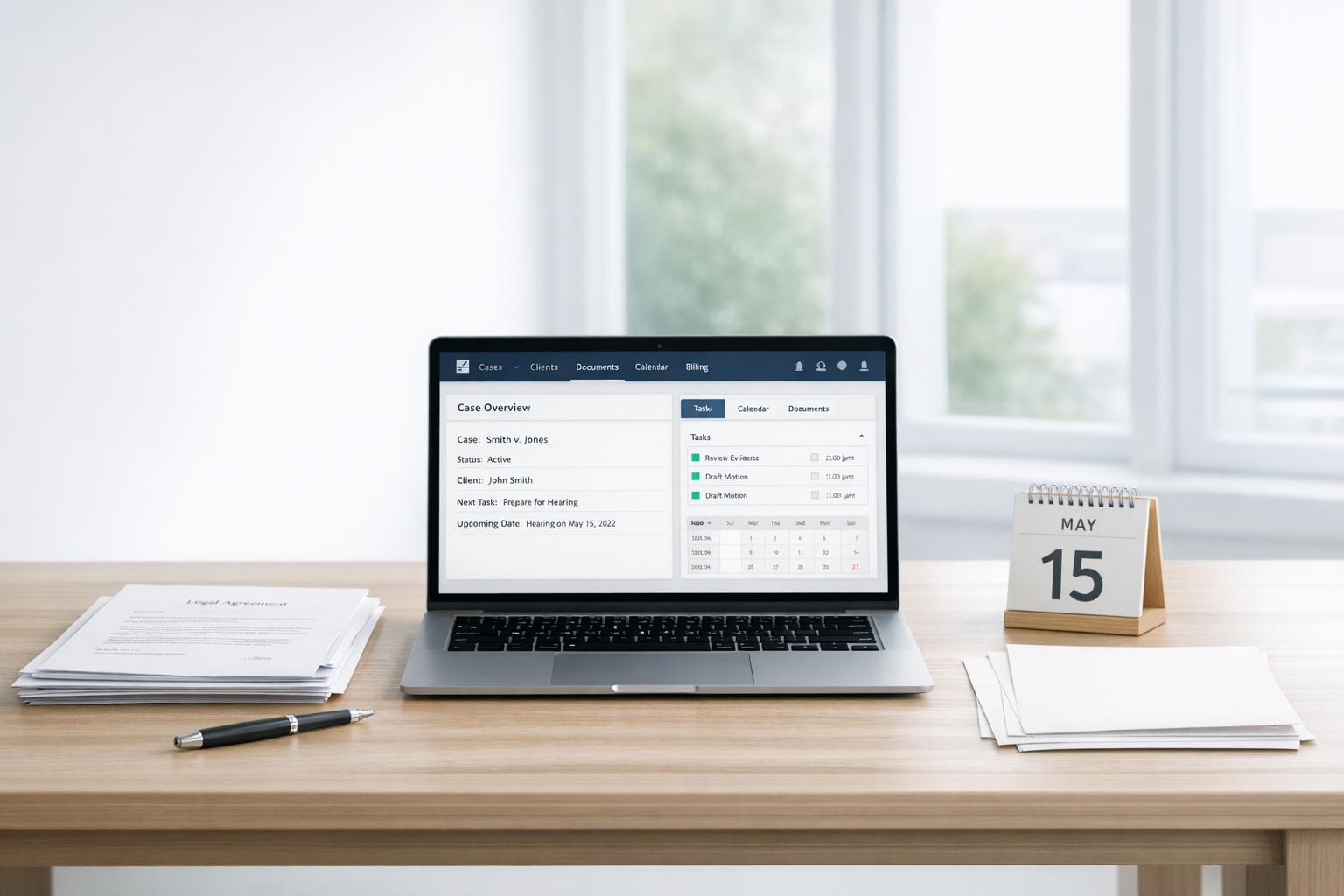Finding the right CRM solution is crucial, but can be overwhelming for small businesses with limited resources.
The good news is there are now more user-friendly CRM options than ever before that balance simplicity and powerful features to help optimize operations.
In this guide, we’ll explore the key benefits of CRM and provide criteria to identify the best free and affordable CRM solutions for small businesses looking to scale while keeping software easy to learn and use.
Introduction
Choosing easy to use CRM software is key for small businesses looking to optimize operations and boost productivity. The right CRM system can help manage customer relationships, sales pipelines, marketing campaigns, and more. However, with so many options on the market, it can be tricky finding software that strikes the perfect balance between simplicity and robust functionality.
Exploring the Landscape of Easy to Use CRM Software
When evaluating CRM solutions, focus on identifying systems designed specifically for small business needs. Seek out software with intuitive interfaces, easy onboarding, and features like:
- Contact management
- Lead scoring
- Sales tracking
- Email integration
- Reporting dashboards
While basic CRM capabilities may be available for free, investing in more advanced tools can pay dividends through automated workflows. However, cost should be weighed against ease of adoption - a system with a steep learning curve can negate any potential benefits.
Key Benefits Of CRM For Your Business
Adopting easy to use crm software can yield tangible improvements across business functions:
- Sales: Track leads through the pipeline, identify hot prospects, and boost win rates.
- Marketing: Segment contacts, personalize messaging, and measure campaign performance.
- Support: Log customer issues, facilitate communication, and strengthen relationships.
- Data: Consolidate information in one place for analysis and informed strategy.
Identifying the Best Free CRM for Small Business
While feature-rich systems carry subscription fees, free CRM software options exist for early-stage companies. Leading choices integrate with everyday productivity suites like Gmail and Office 365. Core capabilities - such as contact management, email tracking, and document storage - provide an entry point before upgrading for more advanced functionality down the line.
When assessing free platforms, ensure ease of use remains a priority - an intuitive interface can offset limitations around customization. Weigh feature sets against business goals and allow room to scale capabilities over time.
Which CRM is easy to use?
Zoho CRM is widely regarded as one of the most user-friendly CRM solutions available, making it a great option for small businesses looking to optimize operations. Here are some of the key reasons Zoho CRM stands out for its ease of use:
Intuitive Interface
Zoho CRM provides a clean, intuitive user interface that is easy to navigate. Key features are accessible from the main dashboard, allowing you to quickly view essential customer data. The layout is customizable to suit your preferences.
Simple Set-Up
The set-up process for Zoho CRM is straightforward, with handy wizards to guide you. You can get started rapidly without advanced technical skills. Their templates, workflows, and tools simplify CRM adoption.
Comprehensive Features
Despite the simple interface, Zoho packs an impressive range of CRM functionality like sales force automation, marketing automation, customer service, and more. It scales to grow alongside your business.
Mobile Access
Zoho CRM's Android and iOS apps enable access on-the-go. The mobile capabilities allow you to manage contacts, track deals, log calls and meetings, and more while travelling.
Affordable Pricing
Pricing starts free for up to three users, with affordable paid plans to upgrade. This makes Zoho CRM accessible for early-stage and growing businesses looking for value.
In summary, Zoho CRM strikes an optimal balance between simplicity and powerful CRM capabilities. The intuitive design, simplified setup, robust feature set, mobile access, and affordable pricing make it one of the easiest to use CRM platforms available.
Is there a simple CRM?
Let's cut to the chase: the best simple CRM is Freshsales Suite. That's because it offers a fast setup process and an intuitive interface. More than just that, it still offers robust functionality, allowing users to utilize sales and marketing features in the same platform.
Here are some of the key benefits of using Freshsales Suite as an easy to use CRM software solution:
- Quick and easy setup - You can get started with Freshsales Suite in just a few minutes. The platform guides you through the initial configuration with a user-friendly wizard.
- Intuitive and uncluttered interface - The dashboard and menus are cleanly designed without unnecessary clutter. Key metrics and essential functions are easily accessible.
- Powerful core CRM capabilities - Despite the simple interface, Freshsales still offers lead, deal, and account management as well as sales analytics and reporting.
- Integrated sales and marketing features - You can handle email and social media marketing campaigns alongside sales tracking without switching between platforms.
- Affordable pricing - Freshsales Suite has transparent pricing starting at an affordable rate for small teams. There are no hidden fees or upcharges.
- Mobile access - The mobile apps enable sales reps to update deals, respond to prospects, and check reports on-the-go.
So in summary, if you want CRM software that gets out of your way while still providing robust tools to manage the essential sales tasks, Freshsales Suite strikes the ideal balance as a simple yet powerful CRM option worth considering. The intuitive interface lets you hit the ground running while the extensive feature set will continue meeting your needs as your business grows.
What is CRM for beginners?
A Customer Relationship Management (CRM) system is software that helps businesses manage customer data and interactions. CRM software provides tools to track leads, organize contacts, log activities like emails and calls, manage projects, and analyze data to reveal insights.
Some key benefits of CRM systems include:
- Lead Management - Track leads through the sales pipeline from first contact to closed deal. Set reminders, assign tasks, and monitor progress.
- Contact Management - Store all customer and prospect contact details and history in one place. Easy lookup and organization.
- Data Insights - Gain visibility into sales trends and performance metrics. Identify opportunities to improve.
- Marketing Automation - Send targeted emails, social posts, and campaigns. Streamline lead nurturing.
- Customer Support - Log support tickets, conversations, and document resolutions. Improves customer satisfaction.
An easy to use CRM can help small businesses and teams get organized and boost productivity without a big learning curve. Many CRM platforms offer free plans for basic features, with paid upgrades for more advanced capabilities. When evaluating CRM software, look for an intuitive interface, integration with other business apps, and customization to fit your sales workflow.
Is CRM software easy to learn?
CRM software may seem intimidating at first, but with some guidance, it can be simple to learn and use. Here are some tips to get started:
Take advantage of training resources
Most CRM platforms offer extensive training resources like videos, guides, and webinars to teach you the basics. Invest some time upfront to understand the key features and how to navigate the system. Many even have built-in interactive tutorials.
Start small and focus on one area
Rather than trying to master the entire platform at once, pick one core area like contacts or leads to focus on first. Once you have a handle on that, gradually expand your knowledge into other modules.
Leverage templates and workflows
Many CRMs have pre-built templates for common tasks like email campaigns, data organization, and workflows to automate repetitive processes. Using these can simplify setup significantly.
Ask questions
Don't be afraid to lean on customer support when you get stuck. And connect with other users through community forums and discussion groups for advice. Chances are, someone else has had the same question.
With a proactive approach and a little patience, CRM software can become an indispensable daily tool for managing all your critical business data in one centralized place. The key is taking small steps initially and learning over time at your own pace.
sbb-itb-d1a6c90
Essentials of User-Friendly CRM Software
Small businesses should look for CRM software with intuitive navigation, customizable roles, and robust training resources to facilitate adoption.
Criteria for an Easy to Use CRM
When evaluating CRM systems, small businesses should prioritize an intuitive user interface design and simple navigation. Key aspects of an easy to use CRM include:
- Clean, uncluttered dashboard with key metrics and KPIs
- Logical menu structure and navigation
- Ability to customize workflows
- Integration with other software like email and calendar
- Mobile optimization
- Contextual help guides and tooltips
Many small business owners prefer simple CRM free options when getting started. This allows them to test CRM capabilities before committing to a paid plan.
The Appeal of Less Annoying CRM
Less Annoying CRM distinguishes itself by emphasizing simplicity and ease of use. It removes unnecessary bells and whistles to focus on core CRM functionality like:
- Contact management
- Lead scoring
- Sales pipeline visibility
- Email integration
- Calendar sync
For small teams that just need basic contact management software and sales tracking, Less Annoying CRM provides an affordable and user-friendly option.
Customization and Contact Management
Smaller companies need to customize CRM software to match their sales process and workflows. Flexible user roles, fields, and rules engine allow for unique customization.
Efficient lead management software and contact database should allow users to:
- Segment contacts
- Set reminders
- Log activity history
- Track lead source
- Score leads
Comparing CRM Software: CRM Comparison Page
Using a CRM comparison page helps identify the right software based on factors like:
- Intended business size
- Number of users
- Types of data tracked
- Desired features
- Budget
Comparing setup, interface, integrations, and pricing makes it easier to determine the most user-friendly option for your needs. Focusing on core CRM functionality around contact management and sales tracking ensures the system will be simple to adopt.
Core CRM Features for Small Business Optimization
CRM software offers key capabilities that enable small businesses to optimize operations, boost productivity, and deliver better customer experiences. By leveraging core features like sales force automation, workflow automation, and reporting, companies can work smarter and scale efficiently.
Lead Management and Sales Tracking
A quality CRM centralizes lead and sales data to create transparency into the sales pipeline. Lead management tools track customer interactions across channels to nurture relationships over time. Sales tracking software visualizes deal progress, helping set realistic forecasts. With visibility into leads and deals, sales reps can prioritize the highest potential opportunities.
Automating Tasks for Efficiency
CRM systems help automate repetitive tasks to save time and minimize errors. Features like email templates, bulk actions, and rules-based workflows eliminate manual busywork. For example, sending personalized follow-ups to new leads or automating lead assignment rules based on geography. This automation provides salespeople more time for revenue-generating activities.
Marketing CRM: Campaigns and Analytics
Integrated marketing automation helps coordinate multi-channel campaigns while tracking performance. Marketers can send targeted emails, monitor open/click rates, run A/B tests, and measure campaign ROI. These insights inform future marketing strategies to drive greater customer engagement.
Project Management Within CRM
Collaborative CRM project management tools facilitate teamwork across departments. Features like shared task lists, Gantt charts, and file sharing enable real-time collaboration. Rather than toggling between separate systems, everything remains connected within the CRM for efficient execution.
In summary, CRMs like sales force automation, workflow automation, and reporting provide information and infrastructure for data-driven decisions. This powers optimized workflows, productive teams, and ultimately, business growth. The right CRM solution offers simplicity plus intelligent features to help companies scale successfully.
Maximizing CRM Impact with Scalability and Integration
Ensuring CRM Scalability for Small Business Growth
As a small business grows, its CRM needs evolve. Choosing easy to use crm software with scalability ensures it can expand from basic contact management to sophisticated sales pipeline and marketing campaign management.
Many CRMs offer free entry-level tiers allowing small teams to get started. As the business scales, upgraded tiers add features like custom fields, advanced reporting, and API access. Selecting a system capable of growing over time prevents having to migrate data to new platforms.
When evaluating CRMs, consider storage needs for contact and activity records. Also assess the maximum number of users supported. Growing businesses need systems facilitating collaboration across departments.
Integrating Sales and Marketing Tools
Integrating sales CRM and marketing CRM systems creates a unified platform for managing customer relationships. This consolidation provides a single source of truth on prospect and customer data.
For example, integrating email marketing and lead generation tools allows tracking campaign responses in the CRM. Sales teams gain visibility into top-of-funnel activity nurturing leads. Marketing gains insight on closed deals tracing back to specific campaigns.
Prioritize CRMs offering native or third-party integrations for essential software like:
- Email marketing
- Social media management
- Web analytics
- Accounting
- Proposal management
The Role of Data Management in CRM
A CRM's data management capabilities directly impact sales and marketing strategy success. The system should consolidate customer data from all business touchpoints into actionable intelligence.
Critical functionality includes customizable reports, goal tracking, and notifications based on record updates. This empowers data-driven decisions aligning sales activities with buyer stages. Marketers can identify customer segments responding to specific offers.
Carefully evaluate each CRM's options for data organization, automation, and analytics. The best systems make data readily available to guide strategy.
Choosing a CRM with a Strong App Ecosystem
Selecting a CRM with a robust app ecosystem facilitates integrating other business tools for a unified workflow. An open API also allows building custom functionality not available out of the box.
For example, apps enabling proposal management, scheduling, or accounting system integration streamline operations. Users access essential apps directly within the CRM interface for simplified navigation.
Vet the app marketplace to ensure availability of critical software categories. Prioritize CRMs with certified apps passing security and compatibility testing. Also consider the API flexibility for future customization.
Affordable CRM Solutions for Small Businesses
Small businesses often face the challenge of limited budgets when selecting software to optimize operations. Finding an affordable customer relationship management (CRM) solution tailored to your needs is key.
Exploring Easy to Use CRM Software Free Options
Free CRM software provides basic features like contact management, task tracking, and reporting. These entry-level options work well for very small teams getting started with CRM. Leading choices include:
- Zoho CRM
- Bitrix24
- HubSpot CRM
While functionality is limited, free CRM delivers essentials like pipeline views, email integration, and multi-channel communication at no cost.
Balancing Cost and Features in CRM Selection
When evaluating CRM software, prioritize must-have features, then compare pricing models across solutions that meet those needs. Focus on core capabilities like:
- Contact management
- Lead scoring
- Sales pipeline tracking
- Email integration
- Reporting
Many CRM systems offer tiered pricing based on number of users and features. This scalable approach aligns costs to business growth over time.
The Best CRM for Small Businesses on a Budget
Top affordable CRM options for small business include:
- Zoho CRM: Robust features at $12/month basic plan. Scales up to enterprise-level.
- Insightly: Contact management focused. $29/month basic plan.
- HubSpot CRM: Free robust CRM with paid marketing and sales hub addons.
- Capsule CRM: Streamlined iPhone/web CRM. $12/month basic plan.
Evaluate free trials to find the best value CRM aligned to your budget and feature needs.
Transitioning from Free to Paid CRM Solutions
When business growth drives increased CRM usage, capabilities like workflow automation, advanced reporting, and customization merit upgrading to paid plans. Most CRM providers make this transition seamless by:
- Offering continuous access during upgrade
- Expanding features in existing account vs. new setup
- Providing migration services to transfer data
With the right CRM software, small businesses can optimize sales and marketing without overspending. Prioritizing must-have capabilities and scalable solutions delivers affordability at every stage of growth.
Conclusion: Making the Right CRM Choice for Business Success
Choosing user-friendly CRM software centralizes data and automates workflows to help small businesses enhance productivity. Define essential capabilities aligned to growth plans and workflows, then compare solutions with free trials.
Summarizing the CRM Selection Journey
Selecting the right CRM starts by clearly defining your business needs and desired outcomes. Consider what data you want to track, what tasks you hope to automate, and how a CRM can support your growth plans. Outline must-have features like contact management, lead scoring, pipeline tracking, and campaign management.
Once you've set requirements, research top CRM options for small business and take advantage of free trials. Assess the user interface, setup process, integrations, and customizability. Gauge how well each platform handles key workflows like managing leads and sales opportunities. Compare available plans to optimize value.
Throughout trials, gather staff feedback on usability and impact on productivity. The best easy to use CRM software balances simplicity for staff with powerful capabilities to achieve business goals.
Next Steps: Implementing Your Chosen CRM
Upon selecting your CRM platform, develop an implementation roadmap that includes:
- Staff training sessions to onboard all users
- Customization of fields, views, and templates to match processes
- Data migration from current systems
- Integration with other software like email and accounting
- Rollout of new automated workflows and processes
Schedule demos with CRM experts to assist with setup and configuration. Provide ample time for staff to learn the system before formal launch. Continuously gather feedback to refine and ensure maximum adoption.
Evaluating CRM Success
Track key metrics over time to gauge CRM success. Monitor leads generated, deals closed, tasks automated, and time savings. Survey staff on usage rates, user satisfaction, and impact on productivity.
Review reports on adoption across teams to identify additional training needs and customization opportunities. Be prepared to refine system configuration and processes to better leverage CRM capabilities long-term.
The right CRM platform powers more efficient operations today while providing data-driven insights to inform better decisions tomorrow. Stay open to maximizing its capabilities to drive business growth over time.


